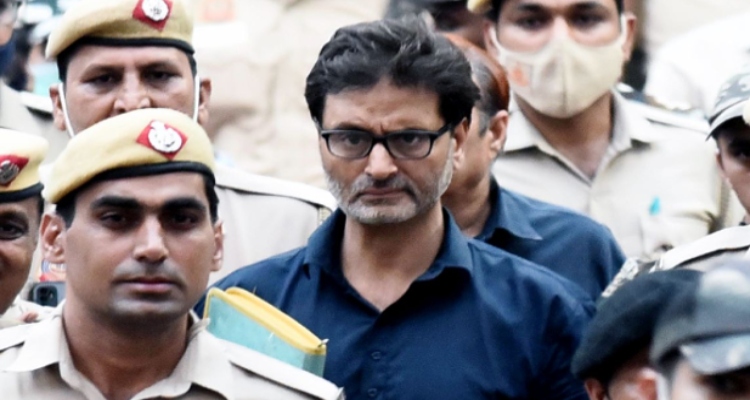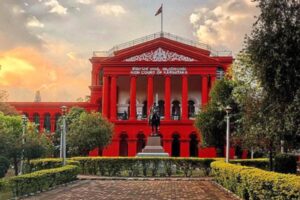
Separatist leader Yasin Malik declined the court’s suggestion to appoint a lawyer on his behalf and informed the Delhi High Court on Friday that he wishes to argue in person against the National Investigation Agency’s (NIA) plea seeking the death penalty for him in a terror funding case.
Malik, the Jammu and Kashmir Liberation Front (JKLF) chief, participated in the court proceedings virtually from Tihar jail, where he is serving a life sentence.
A bench of Justice Suresh Kumar Kait and Justice Girish Kathpalia scheduled the matter for hearing on September 19 and advised Malik to reconsider having legal representation. The court also granted him time to decide whether to file a reply or a written submission.
The bench also emphasized that while Malik has the right to contest his case personally, fairness in legal proceedings requires adequate legal assistance. The bench suggested appointing an amicus curiae to monitor Malik’s interests while he argues in person, proposing that a competent criminal lawyer could also be appointed to represent him.
Malik expressed objections to being produced via virtual mode, arguing that he was physically produced in the trial court without any law and order issues. He claimed that his virtual appearance undermined the fairness of his trial and stated that the high court had not consulted him before deciding on his virtual presence.
The bench advised Malik to challenge the production order in the Supreme Court if he was dissatisfied. Malik, however, preferred not to escalate the matter to the top court and requested either virtual or physical mode for his hearing. He affirmed his willingness to appear in person if permitted.
The bench noted that the case required “substantial hearing,” which might not be feasible if one party is present virtually. It also suggested considering the possibility of a “special court” or another arrangement to address the hearing needs.
On May 29 last year, the high court had issued Malik a notice regarding the NIA’s plea for the death penalty and required his presence at the next hearing. Following this, jail authorities sought permission for Malik’s virtual appearance, citing his status as a “very high-risk prisoner” and concerns over public order and safety. The high court granted this request.
In the current matter, on May 24, 2022, a trial court sentenced Malik to life imprisonment after convicting him under the stringent Unlawful Activities (Prevention) Act (UAPA) and the Indian Penal Code. Malik had pleaded guilty to these charges.
The NIA, seeking a death penalty enhancement, argued that terrorists should not escape capital punishment simply for pleading guilty and avoiding a trial.
The trial court, which rejected the NIA’s plea for the death penalty, had noted that although Malik’s crimes struck at the “heart of the idea of India” and aimed to forcefully secede Jammu and Kashmir from the Union of India, the case did not qualify as the “rarest of rare” warranting the death penalty.




